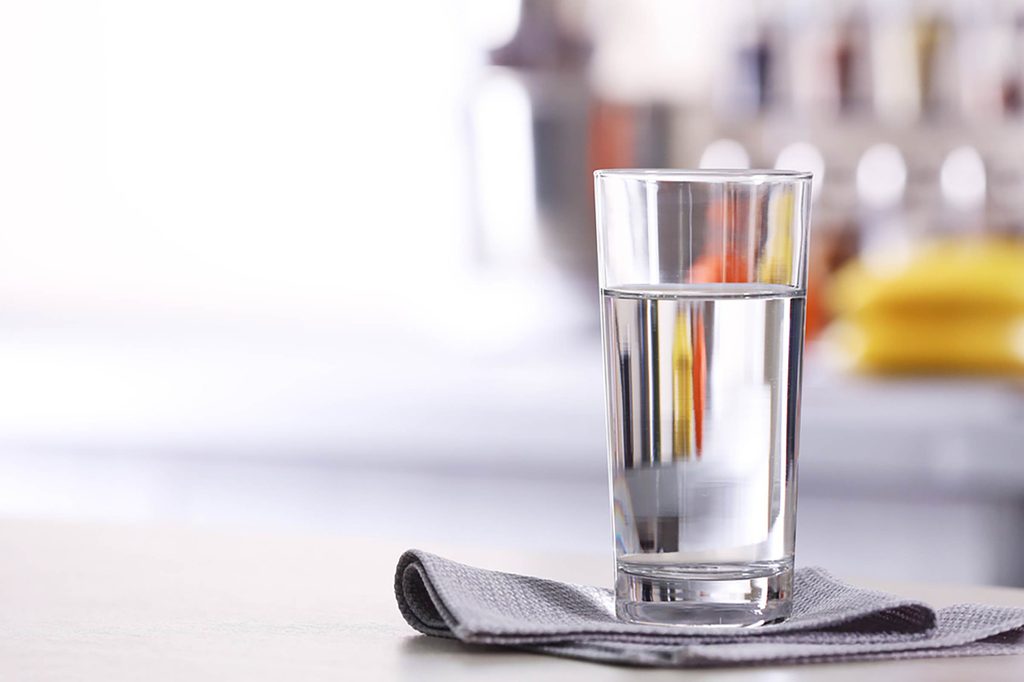If You Drink This Type of Water During Pregnancy, Your Child’s IQ Could Suffer
Updated: Mar. 30, 2022
Most Americans are regularly exposed to this chemical on a daily basis.

Moms-to-be know well that pregnancy is no cake walk. Their diets adjust, their moods fluctuate, and their body puts them through an emotional and physical obstacle course of a lifetime. Throughout that time, the right habits can make for a healthier baby, but everything isn’t always as simple as taking folic acid and attending Lamaze class. According to CNN, expecting moms might have to start avoiding tap water.
Tap water and bottled water (by the way, Poland Spring might not be from a spring at all) have their differences, but one thing you can usually count on when it comes to the free stuff is fluoride. Seventy-five percent of Americans get fluoride through public water since many states require water fluoridation by law as the mineral has been proven to protect from tooth decay. However, a new study has linked the common water additive to lower IQs in children when consumed by pregnant mothers.
The research, published in Environmental Health Perspectives, gathered data from 300 mothers from Mexico and their children, checking for cognitive development twice over a 12-year span. (It’s worth noting that, unlike the U.S, there is no public water fluoridation program in Mexico.) For every 0.5 milligram-per-liter increase of fluoride in the water consumed by the mothers, there was a decrease in scores on intelligence tests.
Fluoride concentrations below 0.8 milligrams-per-liter in urine were found to have no bearing on intelligence testing. The average fluoride urine concentration in women from the study was 0.90 milligrams. The lead author of the 12-year study, Howard Hu, expressed that the additive can be harmless in other ages of development, but not during pregnancy, via CNN.
“Childhood exposure to fluoride is safer than prenatal. There is pretty good science now to support the fact that the fetal system tends to be more sensitive to environmental toxicants than once the child is born.” Also, while bottled water is the safer bet for moms-to-be, tap water is fine to consume otherwise, according to the Centers of Disease Control and Prevention.